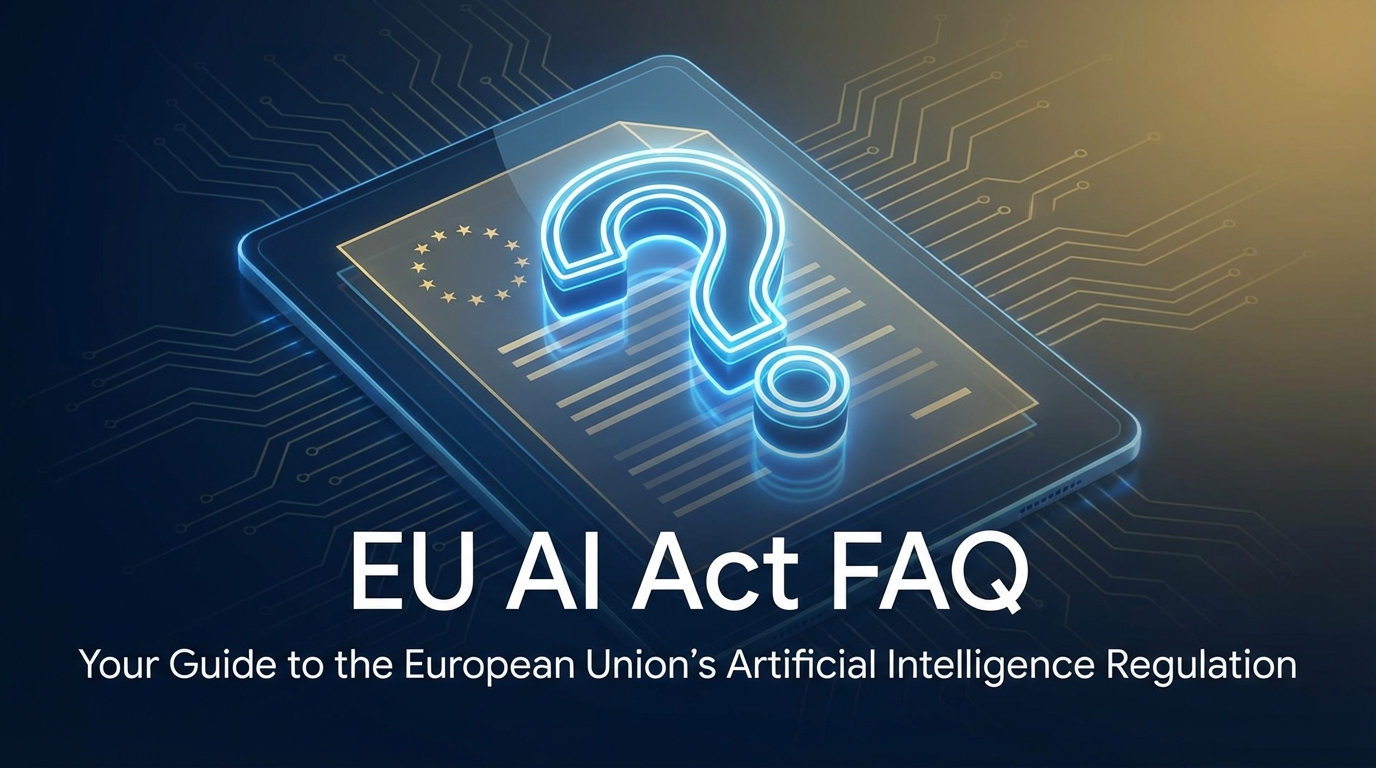EU AI Act: Frequently Asked Questions
Part 1: The Essentials

What is the EU AI Act?
It is a proposed legal framework to ensure AI is used safely and in compliance with fundamental rights within the EU. It aims to establish harmonized rules for the entire single market.
Why is it being proposed?
To balance the fast-evolving nature of AI with the potential risks to health, safety, and rights. It's a proactive response to ensure "trustworthy AI" becomes the standard.
Who does it apply to?
The Act applies to any individual or organization developing or using AI in the EU. Importantly, it has extraterritorial reach—similar to GDPR—meaning it effects entities outside the EU if their systems impact individuals within the EU.
What is the expected timeline?
The goal is to have the regulation in effect by 2024, with full enforcement typically following a two-year implementation window. Organizations should expect local governance bodies and frameworks to evolve rapidly starting in 2023.